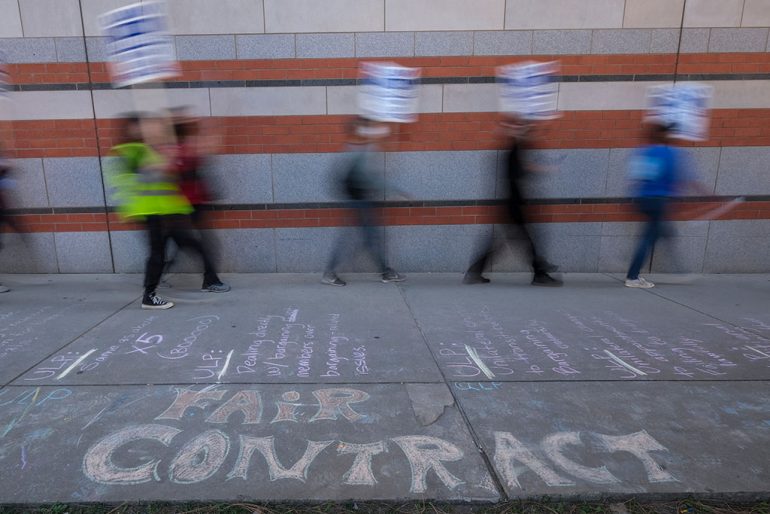
Negotiations between General Motors (GM) and the United Auto Workers (UAW) have reached a critical juncture as the clock ticks down to the expiration of national contracts with major automakers. GM’s initial wage and benefit offer, presented just a week before the contract deadline, has fallen significantly short of the UAW’s initial demands, setting the stage for a potentially contentious showdown.
The offer made by GM includes a 10% wage increase over a new four-year contract, along with two additional 3% one-time payments. Moreover, GM proposes a $6,000 inflation payment, $5,000 more in lump-sum payments to guard against inflation throughout the contract, and a $5,000 contract ratification bonus. However, the effective dates of these pay raises and most of the lump sums remain undisclosed. This offer stands in contrast to what the UAW President, Shawn Fain, has been advocating for, as it relies heavily on lump-sum payments rather than annual wage increases.
In response to GM’s proposal, Fain has expressed deep dissatisfaction, labeling it “insulting.” He has issued a stern warning that unless a tentative agreement is reached with automakers by 11:59 p.m. on September 14, a strike involving up to 146,000 auto workers is a very real possibility. This threat has intensified the pressure on both sides to find common ground.
Furthermore, GM’s offer did not address the UAW’s demand to increase retiree pension payments or eliminate lower tiers of pay at component plants and parts warehouses. These unresolved issues have added complexity to the negotiations.
This labor dispute comes in the wake of the UAW filing unfair labor practices complaints against GM and Stellantis with the National Labor Relations Board last week. At that time, neither company had presented a counterproposal to the union’s economic demands. The UAW’s demands are substantial, including a 46% across-the-board pay raise over four years, a reduction in the workweek to 32 hours with 40 hours of pay, restoration of traditional pensions for new hires, union representation for workers at new battery plants, and elimination of wage tiers. Currently, top-scale UAW assembly plant workers earn approximately $32 an hour, supplemented by annual profit-sharing checks.
In light of the growing tensions, Fain accused GM of failing to bargain in good faith over the past six weeks and suggested that the company’s offer was only prompted by the union’s complaints with the NLRB. He emphasized the urgency of the situation, stating that GM needed to address the issue of “economic justice” promptly.
In response, GM defended its offer in a letter to employees, highlighting that the proposed wage increases were the most significant since the 1999 contract. The letter, signed by GM President Mark Reuss and manufacturing chief Gerald Johnson, expressed the company’s commitment to rewarding its employees for their hard work and goodwill.
The UAW was expected to present another offer in response to Ford’s proposal, and Stellantis also promised to provide a counterproposal by the end of the week. Despite the challenges and differing perspectives, both sides recognize the need to reach an agreement to avoid a potentially damaging strike. In an interview, Fain acknowledged that not all UAW demands would be met but affirmed the union’s readiness to strike next week against any automaker that failed to reach a tentative contract agreement. The coming days will be crucial in determining the outcome of these high-stakes negotiations, with significant implications for the automotive industry and its workforce.
Source: APNews

Mike Floyd is a finance executive by trade and a car enthusiast at heart. As a CFO with a keen eye for detail and strategy, Mike brings his analytical mindset to the automotive world, uncovering fresh insights and unique perspectives that go beyond the surface. His passion for cars—especially his favorite, the Porsche 911, fuels his contributions to Automotive Addicts, where he blends a love for performance and design with his professional precision. Whether he’s breaking down industry trends or spotlighting emerging innovations, Mike helps keep the site both sharp and forward-thinking.